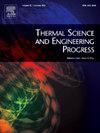基于细胞热建模的外周调节性 T 细胞图谱预测肝移植后停用类固醇的可行性
IF 5.4
3区 工程技术
Q2 ENERGY & FUELS
引用次数: 0
摘要
肝移植后,类固醇疗法通常用于预防排斥反应。然而,长期使用类固醇会导致严重的副作用,因此,本研究旨在通过细胞热建模和实时监测细胞内热力学,评估肝移植后外周调节性T细胞停用类固醇的可行性。本研究利用细胞热建模技术模拟了外周调节性T细胞在不同条件下的热力学特征。流式细胞术和分子生物学方法监测了肝移植动物模型中外周Treg的动态变化。开始类固醇治疗后,尤其是在停药组,外周Treg谱发生了显著变化,这些变化与免疫平衡的恢复密切相关。对热力学数据的实时监测显示,在细胞热模型中,外周Treg活性显示出特定的温度依赖性。细胞热模型与细胞内热力学实时监测相结合,为评估肝移植后停用类固醇的外周调节性T细胞概况的可行性提供了一个新的视角。加强对外周Treg谱的动态监测为制定个性化免疫抑制策略提供了重要依据,并能提高肝移植患者的治疗效果和生活质量。本文章由计算机程序翻译,如有差异,请以英文原文为准。
Profiles of peripheral regulatory T cells forecasts the feasibility of steroid withdrawal after liver transplantation based on cellular thermal modeling
After liver transplantation, steroid therapy is often used to prevent rejection. However, long-term steroid use can lead to serious side effects, therefore, this study aimed to evaluate the feasibility of peripheral regulatory T cell profiles for steroid discontinuation after liver transplantation through cellular thermal modeling and real-time monitoring of intracellular thermodynamics. In this study, cellular thermal modeling techniques were used to simulate the thermodynamic characteristics of peripheral TREgs under different conditions. The dynamic changes of peripheral Treg in liver transplantation animal models were monitored by flow cytometry and molecular biology. Significant changes in peripheral Treg profiles were observed after initiation of steroid therapy, especially in the discontinuation group, and these changes were strongly associated with the restoration of immune homeostasis. Real-time monitoring of the thermodynamic data revealed that peripheral Treg activity showed a specific temperature dependence in the cellular thermal model. Cell thermal modeling combined with real-time monitoring of intracellular thermodynamics provides a new perspective for evaluating the feasibility of peripheral regulatory T cell profiles for steroid discontinuation after liver transplantation. Strengthening the dynamic monitoring of peripheral Treg spectrum provides an important basis for the formulation of personalized immunosuppression strategies, and improves the therapeutic effect and quality of life of liver transplant patients.
求助全文
通过发布文献求助,成功后即可免费获取论文全文。
去求助
来源期刊

Thermal Science and Engineering Progress
Chemical Engineering-Fluid Flow and Transfer Processes
CiteScore
7.20
自引率
10.40%
发文量
327
审稿时长
41 days
期刊介绍:
Thermal Science and Engineering Progress (TSEP) publishes original, high-quality research articles that span activities ranging from fundamental scientific research and discussion of the more controversial thermodynamic theories, to developments in thermal engineering that are in many instances examples of the way scientists and engineers are addressing the challenges facing a growing population – smart cities and global warming – maximising thermodynamic efficiencies and minimising all heat losses. It is intended that these will be of current relevance and interest to industry, academia and other practitioners. It is evident that many specialised journals in thermal and, to some extent, in fluid disciplines tend to focus on topics that can be classified as fundamental in nature, or are ‘applied’ and near-market. Thermal Science and Engineering Progress will bridge the gap between these two areas, allowing authors to make an easy choice, should they or a journal editor feel that their papers are ‘out of scope’ when considering other journals. The range of topics covered by Thermal Science and Engineering Progress addresses the rapid rate of development being made in thermal transfer processes as they affect traditional fields, and important growth in the topical research areas of aerospace, thermal biological and medical systems, electronics and nano-technologies, renewable energy systems, food production (including agriculture), and the need to minimise man-made thermal impacts on climate change. Review articles on appropriate topics for TSEP are encouraged, although until TSEP is fully established, these will be limited in number. Before submitting such articles, please contact one of the Editors, or a member of the Editorial Advisory Board with an outline of your proposal and your expertise in the area of your review.
 求助内容:
求助内容: 应助结果提醒方式:
应助结果提醒方式:


